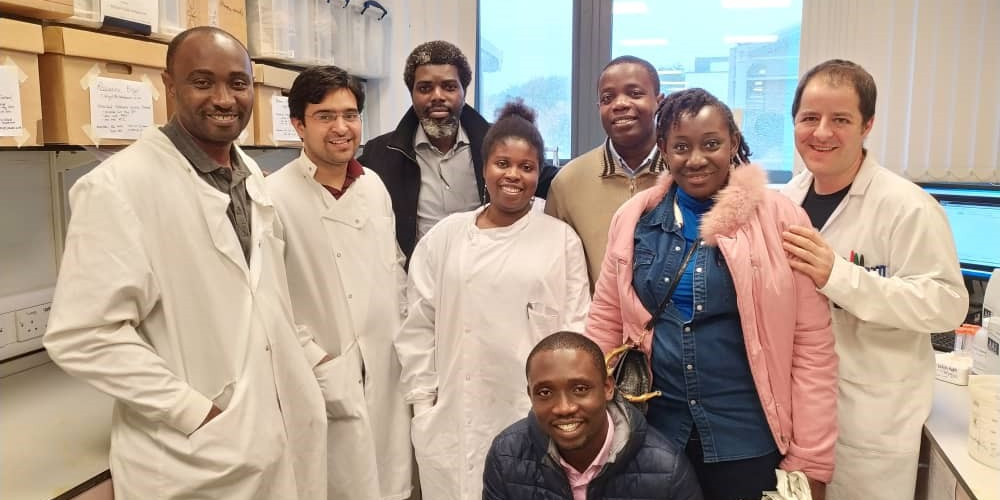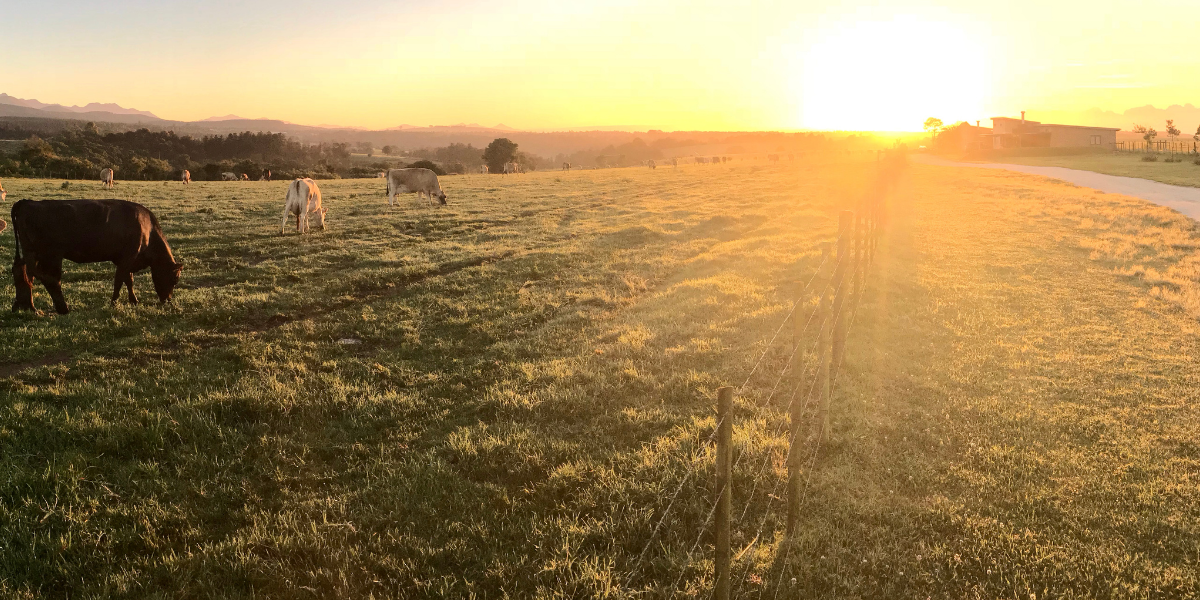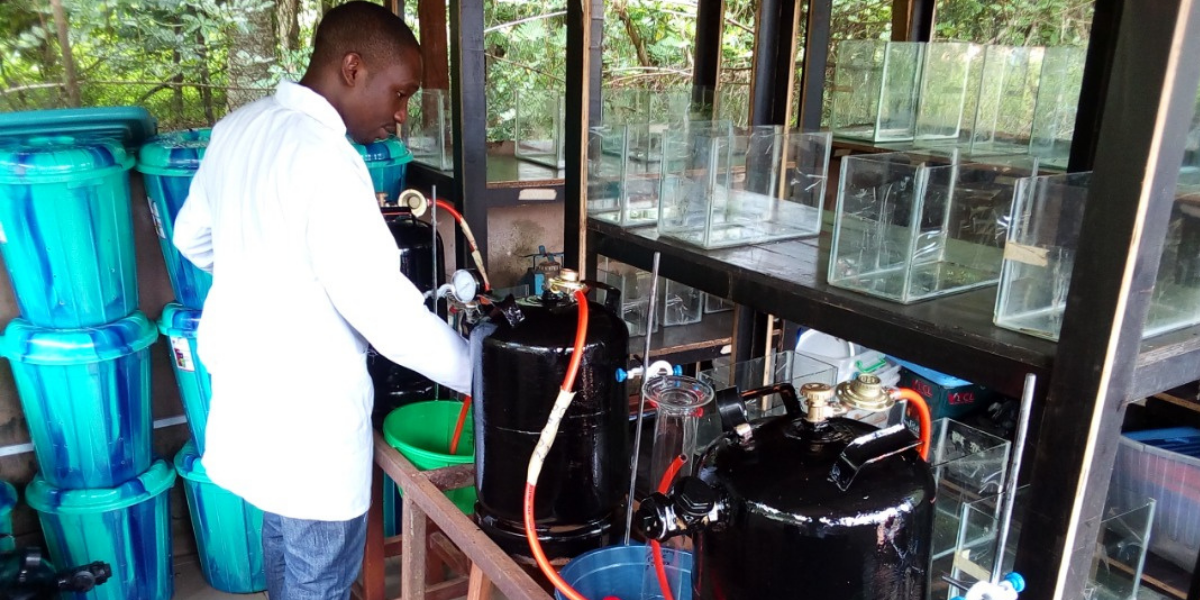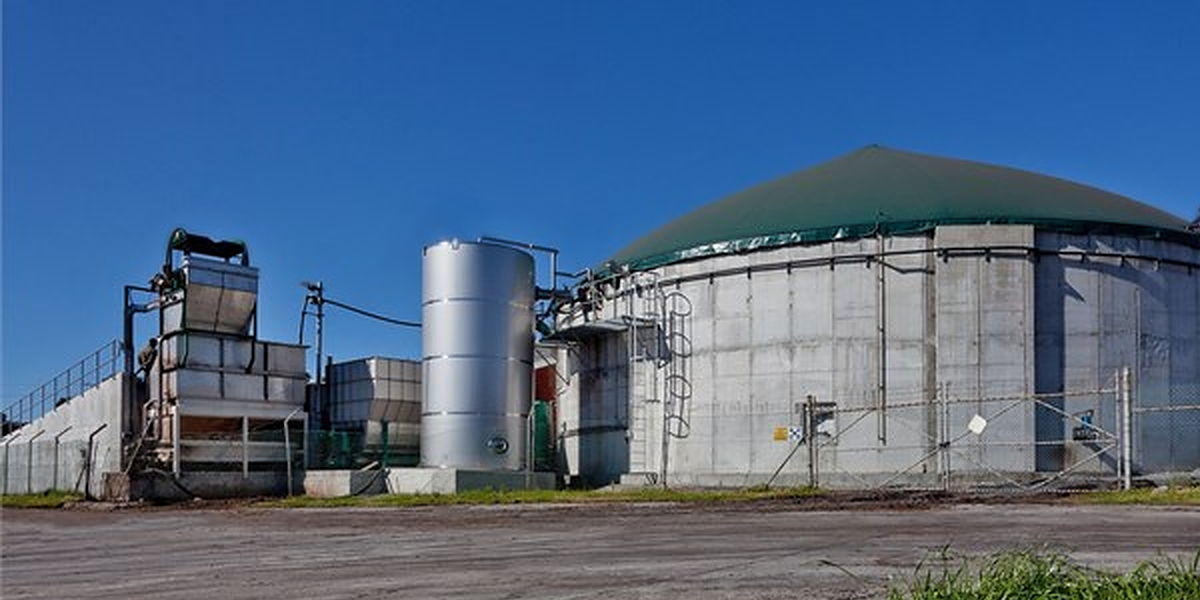
Research unlocking the potential use of organic “waste” for energy production and sustainable food production in West Africa
“Waste” is never going to be the most headline-catching topic is it? Perhaps you would rather be reading about more high-profile topics with more obvious links to the sustainable development goals (SDGs)? Human health is on everyone’s mind of course, so that’s SDG3. Combating climate change is SDG13, food security is SDG2 and Clean Energy is SDG7. But if you think about it a little more deeply, waste, especially organic waste, is directly linked to all those sustainable development goals and many others.
Increased population growth and rapid urbanization have resulted in increased generation of large volumes of waste in many low- and medium-income countries. For example, Ghana generates nearly 4.7 million tonnes of waste per year. That is close to 13, 000 tonnes of waste generated every day.
About two-thirds of this waste is organic. Organic waste ranges from waste from kitchens and markets, through to the by-products of industries including slaughterhouses and farming, such as cow dung or piggery manure. Of course, to put it politely, we all make our own regular contributions to ‘organic waste’ as well. At present, many of these wastes are handled poorly and inefficiently, ending up in refuse dumps or being discharged into rivers or the sea. Disposed of in this way, organic wastes are a major cause of pollution. When they break-down they produce large amounts of greenhouse gases such as methane and carbon dioxide and contribute to the climate crisis (SDG13). Uncollected solid waste contributes to public health impacts such as diarrhoea and cholera (SDG3).
The message is clear: organic waste is a problem that is difficult and expensive to deal with. Finding better ways of removing waste from communities is a key element of the RECIRCULATE project. Our starting point is a simple question: what if we look at “waste” in the different way? What if these organic materials could be used as a useful resource? Looked at it in that way, organic “waste” might become part of the solution to clean energy and food security. Its those opportunities that I have been exploring with my colleagues on the GCRF-funded RECIRCULATE project.
I joined RECIRCULATE from the Institute for Industrial Research (IIR) in Accra. IIR is part of the Council for Scientific and Industrial Research (CSIR), the main science and technology research and development institution of Ghana. In my role at IIR, I was involved in a project to develop locally-made toilets that could be supplied to low income communities. That led to a growing interest in how the waste from the toilets could be managed. When IIR and their partners were successful in winning GCRF funding for RECIRCULATE, I had the perfect opportunity to pursue that interest through a PhD here at Lancaster University.
Ghana may struggle with too much waste, but it also struggles with insufficient energy to meet demands for heating and electricity. Those two challenges converge if we see organic waste as an energy source. One way of doing that is to use a process called anaerobic digestion to produce biogas from waste. Biogas can be used as a sustainable and environmentally friendly (zero net carbon) fuel for domestic cooking and even in industrial systems. For example, my RECIRCULATE colleagues at the University of Benin are working with a range of industries to develop a small domestic AD system to meet the cooking needs of an average family in Nigeria. The RECIRCULATE team at IIR in Accra have also redesigned an AD system as part of the project.
AD has great potential for energy generation, but one potential challenge is how you deal with the material left at the end of the digestion process. How can you avoid solving the problems of the original organic waste only to end up creating another waste that bring its own problems? That’s where my PhD research comes in.
I have been exploring how the end-product of AD, known as digestate, can be used as a fertiliser for agricultural lands and crops. Digestate contains essential elements necessary for agricultural production and has the potential to increase the fertility of the nutrient-poor soils that are commonplace in much of sub-Saharan Africa. Boosting soil fertility can make a huge contribution to food production, and so to delivering SDG2.
I have compared how three different digestates and a commercial fertiliser affect the growth and yield of tomatoes. Applied to a nutrient-poor soil, my results show that the digestate can boost growth very effectively For example, a digestate produced from a combination of municipal solid and liquid waste by Safisana, a commercial waste management company in Accra, almost doubled plant weight. This was not quite as large an increase as with the commercial fertiliser but still a clear indication that digestate has real potential as a crop fertiliser. Digestates have real advantages because they are produced locally, so they are accessible and much cheaper than imported commercial fertilisers.
My PhD work is part of RECIRCULATE’s wide-ranging research on how organic wastes can become a resource to improve food production in West Africa. My immediate colleagues are looking at how AD can be optimised not just for biogas production but also to ensure that any disease-causing organisms are destroyed. Crop-scale field trials with digestate are also underway at CSIR Crops Research Institute in Kumasi. We are expecting results soon, so watch this space! My colleague Rita Fosuaa Obeng from Green Advocacy Ghana even joined a RECIRCULATE research visit to Bangladesh to explore similar research there.
Being part of RECIRCULATE has certainly broadened my knowledge about waste management and given me a wider view of the circular water economy. As well as new technical skills, I have gained new understanding from working with colleagues in different disciplines and different partner organisations. I am optimistic that by working together we will meet our shared goal of improving sanitation, waste management and agriculture, in Ghana and beyond.
 |
Esther Agyabeng Fofie is a graduate researcher working at Lancaster University, UK and is completing a PhD funded by Lancaster University contributing to Work Package 4 (Water for Energy Production) of the RECIRCULATE project. Esther has a Masters degree in Food & Postharvest Engineering and a BSc in Agricultural Engineering, both from the Kwame Nkrumah’ University of Science & Technology, Kumasi, Ghana. Before coming to Lancaster she was a Principal Technologist at the Council for Scientific & Industrial Research, Institute for Industrial Research, Ghana. |
All articles in The FLOW are published under a Creative Commons — Attribution/No derivatives license, for details please read the RECIRCULATE re-publishing guidelines.




